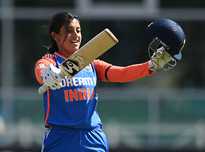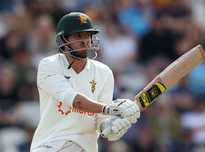After a disappointing end to their FIH Pro League campaign, the Indian men's hockey team faces questions. Seven losses in their last eight matches raise concerns, but is there cause for alarm?
Initially, India held a promising position, ranking third with 15 points from eight matches. However, the European leg proved challenging, with the team managing only three additional points and finishing near the bottom of the standings. While they avoided relegation, the string of defeats, broken only by a win against a weakened Belgium side, has sparked debate.
While the losses are undeniable, a closer look reveals that India was rarely outmatched. The margins were often slim, with six of the seven defeats decided by a single goal. Missed opportunities and late goals plagued the team, particularly against the Netherlands and Australia.
The Pro League serves as a valuable testing ground. The team can learn from these results without significant consequences. While a World Cup spot was at stake, India's focus remains on the upcoming Asia Cup in late August, which offers a more direct path to qualification. Coach Craig Fulton can use this experience to address shortcomings. History also suggests India can rebound from setbacks. Despite a poor away leg in the Pro League before the Paris Olympics, the team secured a bronze medal.
A key factor in India's struggles was their defensive performance. The team conceded 26 goals in eight matches, a stark contrast to the 12 goals conceded in their earlier home games. The usually reliable defensive unit, including Amit Rohidas, Sumit, Jugraj Singh, Jarmanpreet Singh, and Sanjay, experienced lapses in concentration. Failed clearances, mistimed tackles, and poor positioning proved costly.
Goalkeeper Krishan Pathak's form also dipped, particularly with high balls. The absence of veteran PR Sreejesh, known for his exceptional shot-stopping and composure, was keenly felt. Neither Pathak nor Suraj Karkera could replicate Sreejesh's crucial saves in critical moments.
While wholesale changes aren't necessary, certain selection issues need addressing. Fulton's continued reliance on experienced forwards like Mandeep Singh, Lalit Upadhyay, and Dilpreet Singh has yielded inconsistent results. Shilanand Lakra, despite his relative inexperience, has shown promise and could warrant a permanent place in the squad.
Before the Asia Cup, Fulton must consider integrating talented young attackers like Araijeet Singh Hundal, Arshdeep Singh, and Mohammed Raheel, all of whom possess international experience.
Amidst the challenges, Abhishek emerged as a standout performer. As the team's best forward, his ball-striking ability shone through, scoring four goals and providing a crucial attacking outlet in Harmanpreet's absence.
Manpreet Singh's unwavering commitment and tireless work rate also deserve recognition. His experience and dedication make him a valuable asset to the team.
India's immediate focus is the Asia Cup, scheduled from August 27 to September 7. As the top-ranked team in the continent, India is expected to win the tournament and secure their place at the World Cup.
Newer articles
Older articles
 IRCTC's AskDisha 2.0: AI Chatbot Simplifies Train Ticket Booking, Refunds, and Information Access
IRCTC's AskDisha 2.0: AI Chatbot Simplifies Train Ticket Booking, Refunds, and Information Access
 Google Maps Boosts Navigation Accuracy with Enhanced Orientation API Update
Google Maps Boosts Navigation Accuracy with Enhanced Orientation API Update
 Rishabh Pant's Fearless Batting Revolutionizes Test Cricket: Greg Chappell Draws Adam Gilchrist Comparison
Rishabh Pant's Fearless Batting Revolutionizes Test Cricket: Greg Chappell Draws Adam Gilchrist Comparison
 TSMC Regains Top 10 Global Value Ranking Amid AI Boom
TSMC Regains Top 10 Global Value Ranking Amid AI Boom
 Chess Sensation: 9-Year-Old Indian Prodigy Holds Magnus Carlsen to Draw in Online Tournament
Chess Sensation: 9-Year-Old Indian Prodigy Holds Magnus Carlsen to Draw in Online Tournament
 US Open: Venus Williams offers update on future after age-defying doubles run ends
US Open: Venus Williams offers update on future after age-defying doubles run ends
 Mandhana's Maiden T20I Century Fueled by Yadav's Pep Talk; India Dominates England
Mandhana's Maiden T20I Century Fueled by Yadav's Pep Talk; India Dominates England
 Nitish Rana Set for Delhi Return After Disappointing Uttar Pradesh Stint
Nitish Rana Set for Delhi Return After Disappointing Uttar Pradesh Stint
 Bennett Out of SA Test After Concussion; Masvaure Called Up
Bennett Out of SA Test After Concussion; Masvaure Called Up
 IND vs ENG Test: 'Practice nahi hogi' - Arshdeep Singh spills the beans on wrestling with bowling coach Morne Morkel
IND vs ENG Test: 'Practice nahi hogi' - Arshdeep Singh spills the beans on wrestling with bowling coach Morne Morkel